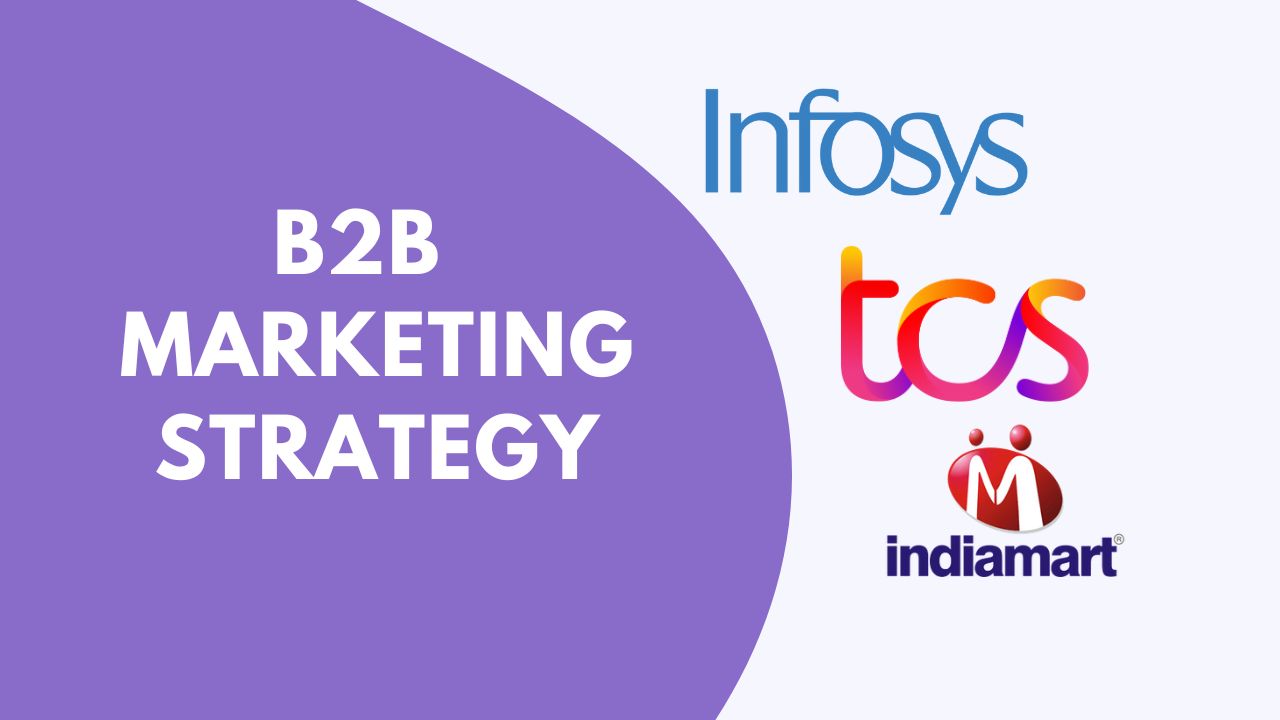
4 Essential B2B Marketing Strategy to Grow
When firms make B2B marketing strategies, they think primarily of direct and outbound techniques like marketing messages that are sent straight to clients or prospective buyers. In this approach, the goal is to be compelling and persuasive enough that the audience responds to the offer and seriously considers your services.
Techniques like these certainly have a place in the marketing tool belt. But the world of B2B marketing strategies has expanded enormously, and the behavior of professional services buyers has changed. Today’s buyers are nearly as likely to turn to search engines for answers to their work-related challenges as they are to ask a colleague or connection for a referral.
Therefore, this evolving marketplace has broadened the range of B2B marketing strategies at your disposal. So, staying competitive today means taking full advantage of a wide spectrum of strategies.
Business-to-business marketing, or B2B marketing, refers to marketing in which the primary audience is another business or organization. Unlike marketing for consumer purchase (business-to-consumer, or B2C), B2B marketing focuses primarily on ensuring that clients receive a high return on their investment. Software, technology, and agency marketing services are common B2B products. In B2B marketing, the audience is typically a committee of influencers and stakeholders with varying degrees of buying power. This can make it challenging for B2B marketers to focus on a single target audience. That is why B2B marketing focuses on appealing to a broad audience and accommodating the long sales cycles. Businesses and marketing agencies do extensive research to ensure a product will suit their needs and provide ample return.
List of The Essential B2B Marketing Strategy
To get the optimum result, marketers must explore a few essential B2B marketing strategies and implement them to help the firm get ahead of the competition. Let’s have a look:
1. Research
It cannot be stressed enough that research is the bedrock of any modern marketing effort. From marketplace research to brand research, detailed scientific studies will help brands make more informed decisions. They’ll give marketers an objective basis for marketing and provide valuable baselines for measuring the results. By conducting research, marketers can know clients better which puts them in a position to serve customers better. Market research also gives an insight into how the processes are performing. It can be understood which aspects of the firm are performing most successfully and develop a better understanding of which services should be offered. The impact of research is clear. Research shows that firms that conduct systematic research on their prospects and clients grow three to ten times faster and are up to two times more profitable than peers that don’t pursue research. Overall, it is a non-negotiable point.
2. High performing website
In today’s professional services marketplace, a firm’s website is one of the most crucial assets. It is much more than a digital billboard or brochure, as some firms believed in the past. A successful website is the hub of a firm’s online presence and an information-rich projection of its expertise into the marketplace. A website is a critical tool for building visibility. Potential clients search online to find service providers, and they need to be able to find the firm’s website in order for the brand to have a chance at winning their business.
Additionally, the website enables marketers to demonstrate the firm’s expertise and become well-known throughout the marketplace. A website must have robust educational content and carefully targeted offers that can lead to engagement. A second component of a website to consider is design. Web and graphic design can influence the audience’s perceptions, aid recall, and swiftly and intuitively differentiate a business.
The power of design to engage audiences is often underappreciated which means it offers a tremendous opportunity to set firms apart and convey the credibility firms need to thrive. Finally, another increasingly essential consideration for your website is its usability across a wide range of devices, including mobiles. Responsive design, which allows your website to adapt to suit a user’s device, has become a key feature as more people use mobile devices to do business.
3. SEO
As we alluded to in the previous item, your target audience has to be able to find your website for it to be effective. That’s where search engine optimization plays an important role.
This is such a key piece of the online marketing puzzle that in our studies, high-growth firms list it as a very effective digital marketing technique available to them. And in one of our most recent versions of the High Growth Study, we saw that higher levels of SEO maturity seemed to translate into a greater proportion of digital leads. This same study showed a similar correlation with higher SEO maturity and increased profitability, most likely because digital leads usually cost less to generate.
4. Social Media
There is no proof needed anymore to claim that social media is here to stay for professional services firms. Research has found that over 60% of buyers check out new service providers on social media, making it a more commonly used source of information than formal referrals and recommendations. Even the nature of referrals has changed in the wake of social media. A study on referral marketing has found that 17% of expertise-based referrals are made on the basis of interactions on social media. Overall, social media is an accelerator for the reach of a brand’s reputation, expertise, and content. It allows marketers to network and connect with valuable contacts and influencers, as well as monitor the brand by social listening.



